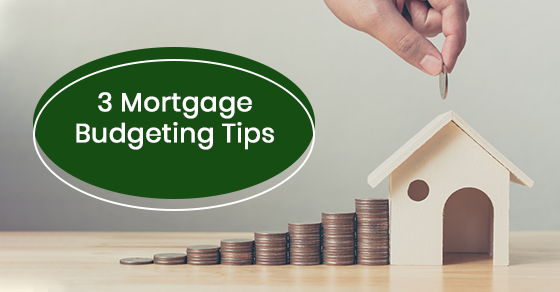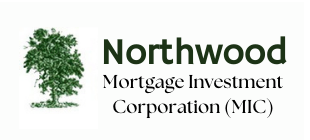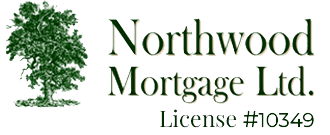One of the best ways to start saving up money for a mortgage is to see where you can cut back. If you haven’t already done so, figure out your net monthly income and your fixed expenses. Fixed expenses are ones you can’t change, such as rent, student loan payments, or child care.
After that, figure out what your variable expenses are. Variable expenses are irregular; they can happen from as little as once a year to as often as every other week. They are also expenses that you have more control over. Here are some examples:
-
See where you can cut back.
-
Come up with as high a down payment as you can.
-
Determine how much house you can handle.
See Where You Can Cut Back
One of the best ways to start saving up money for a mortgage is to see where you can cut back. If you haven’t already done so, figure out your net monthly income as well as your fixed expenses. Fixed expenses are ones you can’t change, such as rent, student loan payments, or child care.
After that, figure out what your variable expenses are. Variable expenses are those that are irregular; they can happen from as little as once a year to as often as every other week. They are also expenses that you have more control over. Here are some examples:
-
Vacations
-
Gifts
-
Cell phone
-
Internet and cable
-
Subscription boxes, where you get food, toys, or clothes mailed to you
-
Groceries and takeout food
-
Meals and drinks out
-
Entertainment, such as movies, concerts, etc.
We’re not suggesting you have to give up everything in life that brings you pleasure! Take a look at these expenses and figure out where you can cut back. Perhaps you will go from eating out twice a week to twice a month. Or you can cancel cable if you never really watch it anyway. Once you take a good look at all your expenses, you’ll find many places you can make changes and save money.
Save Up a High Down Payment
Now that you’ve found some areas to cut back in, you can think about the next step in mortgage budgeting: saving for a high downpayment. The two main benefits of this are:
-
It will cut down on your mortgage payment. The higher a down payment you can place on your house, the lower your monthly or bi-weekly mortgage costs will be. This means you can pay your house off faster and pay less in interest over the long term.
-
You don’t have to pay Canadian Mortgage and Housing Corporate insurance. As long as you have 20% or more of your down payment saved, you won’t have to pay loan insurance.
If you have less than 20% of a downpayment, you’ll have to get mortgage loan insurance. This insurance is considered necessary, as it protects your lender in case you can’t make your payments.
Your insurance premium will be calculated as a percentage of the loan. It’s based on your down payment size, so the lower your down payment (and therefore, the higher the percentage of the total value that you borrow), the higher percentage that you will end up paying in insurance premiums.
Determine How Much House You Can Handle
It can be easy to get swept away in the idea of your “dream house.” However, when you’re looking at houses, you need to consider how much house you can handle on a day to day basis. You need to think about the following:
-
Will your home cost so much that you’ll end up “house poor,” where you can afford the house but nothing else? At Northwood Mortgage™, we want to make sure you get the right mortgage for you, not one that will leave you stressed out!
-
How much time do you want to spend cleaning and maintaining the inside of your house? The larger a place is, the more work it’s going to require. You either have to do the work yourself or pay someone to do it.
-
A larger place costs more than a smaller one to heat up or cool down.
-
Do you want a large yard or garden that you have to take care of or pay someone else to? What about shovelling in the winter?
-
You also need to think about insurance and property taxes. The larger the place you have, the more you will pay in insurance and property taxes.
How Northwood Mortgage Can Help You
We’ve been in business since 1990. Our staff of over 135 professional mortgage agents would be happy to tell you about our high-quality services and products.
We’re here to help you figure out everything you need to know about a mortgage. We can answer all of the following questions and more!
-
What exactly is a mortgage, and what kind can I qualify for?
-
There’s so much jargon. What’s a fixed or variable rate mortgage? What’s amortization? We can help you understand all the terminology, so you know exactly what you’re getting into.
-
What’s the difference between a first and a second mortgage?
-
How can I save money on my mortgage? We can work with you to figure out how you can save money, such as finding a low-interest rate.
Now You Know
It can be very daunting to think about saving up to buy a new home. Figuring out how to get started with mortgage budgeting can be a monumental task, but it’s not so bad if you break it down step by step. We’ve helped you learn about:
-
Investigating areas you can cut back to save more money
-
Why it’s important to come up with a high down payment
-
How to determine how much house is too much
-
How Northwood Mortgage can assist you with getting the right mortgage
We’re Here to Help You
We know it can be overwhelming to think about getting a mortgage, but we’re here to help you! Call us today at 888-492-3690 or contact us online. We’re here to answer all your mortgage questions.






































